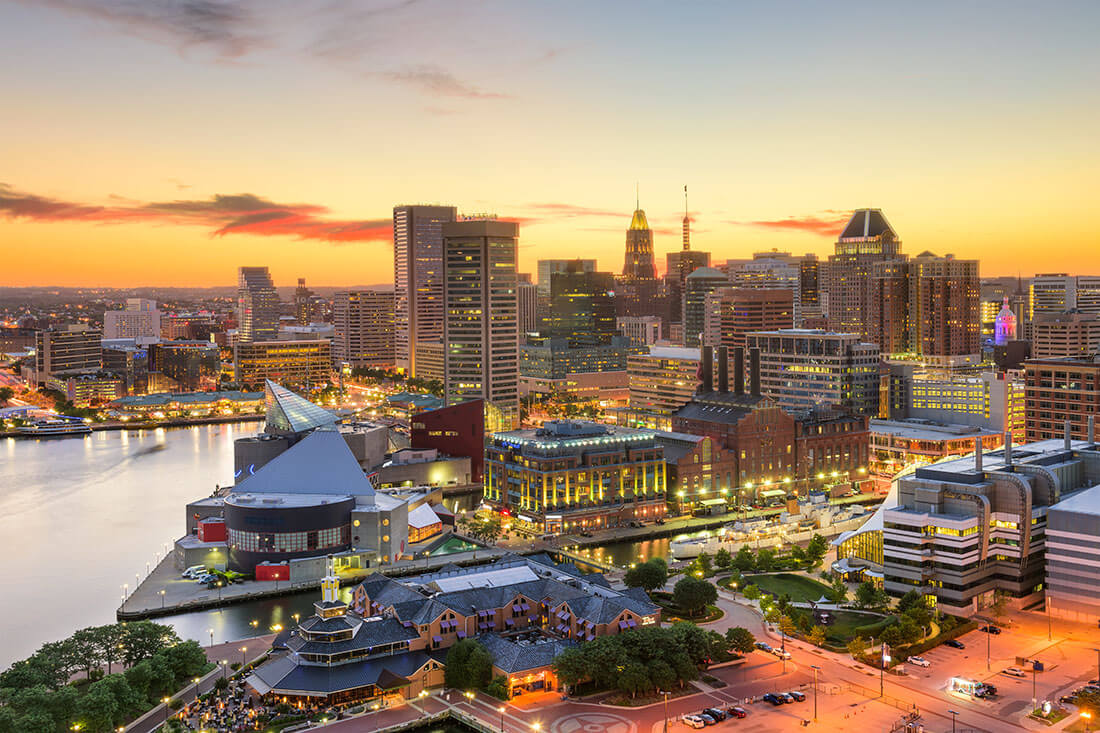Friday Five
March 28, 2025 | This week's latest on Maryland business and government
1 — After intense debate, Maryland House approves budget with additional tax hikes
A Maryland state government budget that creates a new tax and raises others is closer to reality, following approval in the House of Delegates on Wednesday. Delegates spent three intense hours debating the measures, with Democrats insisting that they made difficult but responsible choices and Republicans saying that the state is spending beyond its means and driving businesses out of Maryland. The budget bills now move to the state Senate, which is planning several changes to the bills, including differences in some of the spending cuts, not including combined reporting for businesses and adding in contingency plans for if Congress cuts federal aid that the state receives.
On transportation: To boost transportation funding, House members also voted to increase the vehicle excise tax from 6 percent to 6.8 percent, move up planned vehicle registration fee increases by one year, increase vehicle emission fees from $14 to $30, establish a 3.5 percent excise tax for short-term vehicle rentals and double vehicle titling fees.
2 — WBAL Radio host to Moore: ‘How can you say this budget is pro-growth?’
WBAL radio hosts Bryan Nehman and Clarence Mitchell IV shared their skepticism of the state’s newly agreed-upon budget framework Wednesday, with Governor Moore joining the conversation to maintain his stance that the more than $1 billion in tax increases featured in the budget would help the state. “Most economists will tell you that this budget does the opposite [of promoting growth and business],” Nehman said. “How can you say this budget is pro-growth or pro-business?” Moore pointed to tax cuts for middle-class families and reforms to the procurement and permitting processes as attractions for new businesses and cutting-edge technology like artificial intelligence and quantum computing.
Moore defends budget: “This is a deeply responsible budget that we’ve landed on, and one that we think that the people of the state will appreciate,” Moore said. He repeated his claim that 94 percent of Marylanders will see no change or a modest cut to their income taxes. But the budget does raise $1.6 billion in taxes and fees that will hit some Marylanders and affect businesses. Information technology and data services will be taxed for the first time at 3 percent, and certain corporations will have to calculate their taxes differently — and pay more.
3 — Moore, Dems reject notion that ‘tech tax’ runs counter to governor’s growth plan
Governor Moore and top Democrats in the legislature have pushed back on claims from members of the business community that a new 3 percent tax on information technology and data consulting services will hurt the governor’s mission to make Maryland more economically competitive and a hub for technology and similar industries. State analysts have projected that the new tax will generate about $500 million next fiscal year. It is part of a plan, which the House of Delegates passed this week, to raise more than $1 billion to balance the budget amid a $3.3 billion deficit.
Quoted: “The tax will create a significant disincentive for technology companies to invest and grow within the state,” Cybersecurity Association of Maryland Executive Director Tasha Cornish said. “The increased cost of doing business will drive innovation and talent elsewhere, hindering Maryland’s ability to attract and retain high-growth technology firms.”
4 — Lawmakers toss consumer electric bill refund into grab bag of energy bills
Senators on Tuesday rolled a laundry list of energy bills together into one package aimed at reshaping Maryland’s energy picture well into the future. The amended bill builds on a package endorsed by legislative leaders early in the session that would create a “fast track” process to approve certain new power facilities in the state. But amendments set new limits on the process, including procurement procedures for additional nuclear power and energy storage technology that could contribute stored power to the grid during peak times. It also aims to rein in utility spending on natural gas infrastructure by requiring companies looking to get rapid reimbursement from ratepayers to first show that new infrastructure is needed.
Larger consumers: Industrial facilities that use a large amount of energy (100 megawatts), such as data centers, were also targeted in the amended bill, which calls for utilities to develop a unique rate schedule for those customers, among other provisions.
5 — Federal government cuts put Maryland at highest risk for recession in the U.S.: Report
A report from the global credit rating agency Moody's Ratings shows shrinking the federal government is creating a bigger recession threat to Maryland than any other state in the U.S. The report notes federal wages account for more than a fifth of gross income in the state's counties. University of Maryland Clinical Professor of Finance David Kass explains that stock losses and reduced spending could hasten and deepen the recession, impacting businesses.
Federal dependence: Maryland’s economy has long benefited from its proximity to the federal government, but this reliance also creates vulnerabilities when federal spending slows or layoffs occur. To build a more resilient economy, the state should prioritize attracting and retaining private sector employers that can help offset federal cutbacks and diversify our job and tax base.
Advancing inclusive partnerships for a Maryland where all businesses and their communities thrive
The Maryland Chamber of Commerce is the state’s leading business advocacy organization — committed to working with our alliance of partners on critical public policy issues. With a focus on economic development and grassroots advocacy, we impact policies that directly affect Maryland business.

